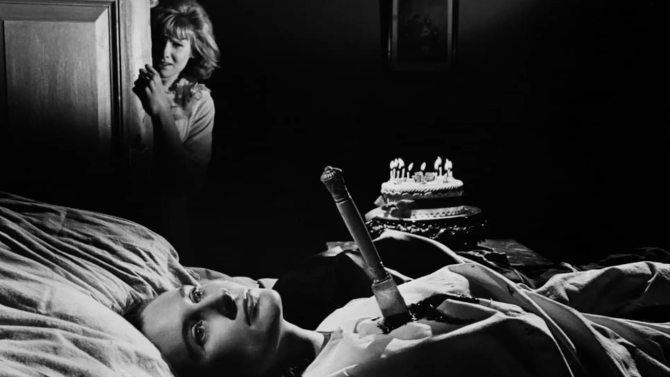
Night Terrors
Unlike most other memorable Hammer horror movies, the 1964 mystery thriller Nightmare, directed by Freddie Francis (perhaps better known as the cinematographer of films like David Lynch’s The Elephant Man and Martin Scorsese’s Cape Fear) eliminates all of the monsters for an old fashioned quasi ghost story... the piece deserving to be remembered up there with those Hammer horror films centered on vampires, resurrected corpses, and lycanthropes. Shot in shadowy black and white, the story follows struggling seventeen year old Janet (Jennie Linden), who is currently away from home living at a finishing school for girls.
-

Phantasmagoria
PhantasmApril 17, 2018The English language has so many fascinating and underused words: conundrum, copasetic, and, most importantly, at least to this review, phantasm. . . a term that I would likely not even know if it wasn’t for two distinct sources – the works of Edgar Allan Poe as well as the title of the 1979 horror film Phantasm and its sequels. Defined as a figment of the imagination or disordered mind, as well as an apparition of a living or dead person, Poe often used it in reference to his characters, who wandered around in a fugue state, while writer/director Don Coscarelli visualizes this word, concocting a fantastical dream-like (or should I say, nightmarish) horror landscape. Seen through the eyes of thirteen year old Mike (A. Michael Baldwin), he is a boy who fears so much. Losing his parents to an accident, he constantly trails his older brother Jody (Bill Thornbury), worried that he too will leave him. To flash back for a moment, the movie actually opens with another death, that of a family friend who is killed after climaxing in a graveyard. . . the mysterious Lady in Lavender (Kathy Lester) finishing him off after she is satiated. Made to look like suicide, it is another unpleasant reminder of how death has haunted Mike’s short life. The only other person in their circle is Reggie (Reggie Bannister), a loyal, oft present friend of Jody’s.
-
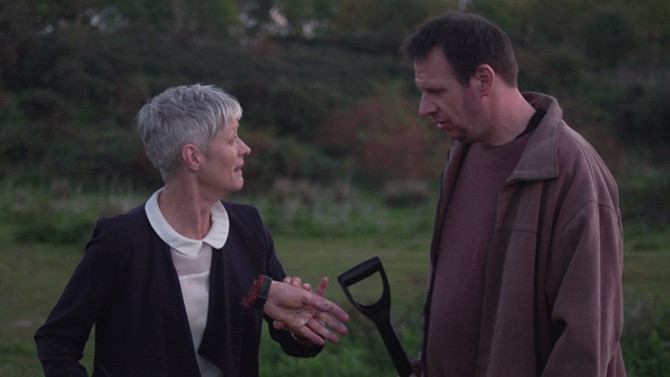
Hand it Over
The Missing HandMarch 20, 2018Don’t you hate when this happens. . . while working outside, you by chance stumble upon a severed hand. It is this absurdist situation that comes to vivid life in writer/director Daniel Harding’s 2016 dark comedy short film The Missing Hand. Right out of the Alfred Hitchcock playbook, think The Trouble With Harry (and, if you do not recall the premise, I’ll let you in on a little secret – Harry’s dead) or Rope, the narrative finds two very different people, Ms. Whitman (Meryl Griffiths) and Trevor (Neil James) walking a plot of land they are thinking of developing. The former – a shrewd, business-driven financier, the latter – an energetic, simple-minded builder; the pair are destined to make a killing on the vacant lot.
-
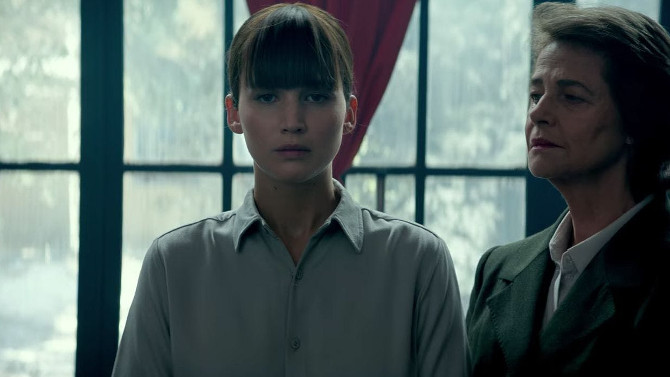
Seeing Red
Red SparrowMarch 4, 2018If it was ever possible for a film to be of the wrong time as well as utterly relevant for its time, Francis Lawrence’s Red Sparrow would be it. Like a hybrid of a 1970's B exploitation pic and Italian giallo thriller (it relishing in its moments of sadism, violence and nudity), at the same moment, it is a worthwhile vehicle for its female lead. Dealing with topics such as rape, revenge, retribution, and politics, its old-school style story-telling (with twenty-first century glossy filter) has likely pushed it to the fringes – with such issues ripping through Hollywood and American politics itself, it may be too close to home for many to enjoy. A motion picture that would have thrived on the drive-in circuit back in the day, it is a twisty (and twisted) Machiavellian tale of spy-craft and game-playing. . . a dog eat dog, cutthroat world. Led by a daring performance from Jennifer Lawrence (reuniting with her Hunger Games director – that is, of films two, three, and four), she plays Dominika Egorova, a prima ballerina in Russia. After a horrible injury, she is left in a precarious position, as she does not have the money to support herself or her sickly mother, Nina (Joely Richardson).
-
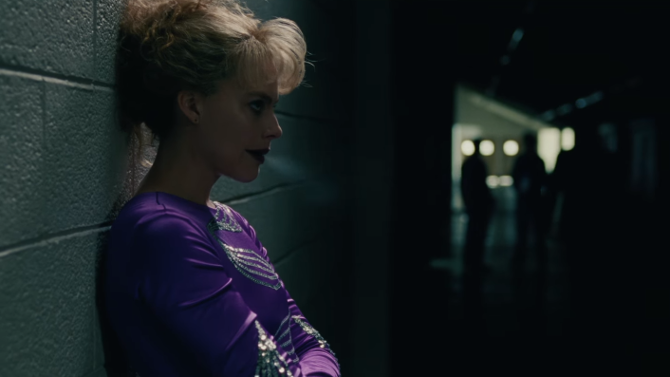
Spinning a Tale
I, TonyaFebruary 23, 2018Like landing a triple axel, figuratively speaking, I, Tonya writer Steven Rogers and director Craig Gillespie (Lars and the Real Girl) conquer the difficult feat of bringing the complicated career of figure skater Tonya Harding to vivid life on the big screen. Relishing in the ‘perception of truth’, Rogers and Gillespie develop a bio-pic mockumentary style approach, each character having their own version of the story. Complex in its narrative direction, multiple persons have their say, sometimes breaking the fourth wall and talking directly to the audience – at one point, Harding (Margot Robbie – Academy Award nominee for Best Lead Actress), gun in hand, makes it quite clear that this portion of the tale never actually happened – a rebuttal to her husband, Jeff Gillooly (Sebastian Stan), and his unflattering perspective.
-
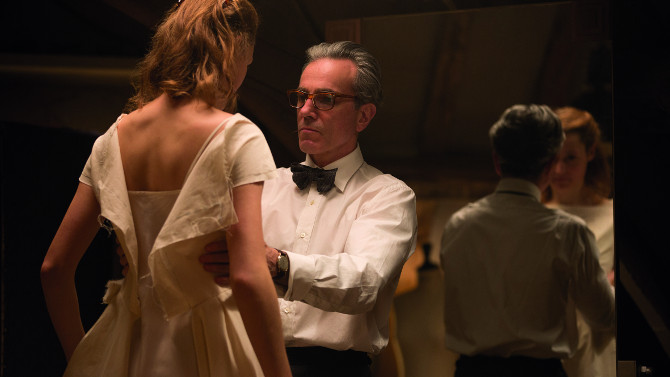
What a Tangled Web We Weave. . .
Phantom ThreadFebruary 18, 2018Perhaps the end of something very special. . . that is, if Daniel Day-Lewis does follow through and retire from acting after his most recent lauded performance in Paul Thomas Anderson’s Academy Award Best Picture nominee Phantom Thread. It is this nuanced role that will bookend a career that has consisted of six deserving nominations and three well earned Oscars (four, if he wins this year). At the heart of this tale of gothic romance (Anderson’s narrative and classic visual aesthetic reminiscent of movies like Rebecca), Reynolds Woodcock (Day-Lewis) is a renowned dressmaker (circa the 1950s), a man who, like his flawlessly tailored clothing (he hides secrets in the work), expects everything to be just perfect. He is peculiar in his cleanliness and rigidity – every hair in its place, absolute quiet at breakfast (his entire day ruined if his stringent routine interrupted). . . obsessive in every which way, including in that he is still haunted by the death of his mother. An example of this fiefdom of rules and attitude – after tea is brought to him at the wrong time, he exasperatingly exclaims, “the tea is going out; the interruption is staying right here with me”.
-
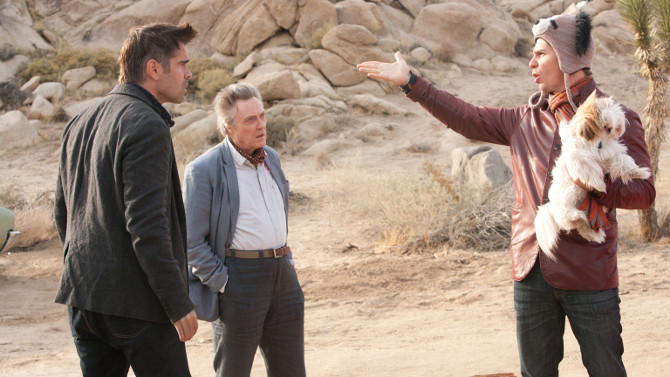
Following the Paths of Psychos
Seven PsychopathsFebruary 6, 2018One of the most originally creative scripts to be found on either side of Ebbing, Missouri, Martin McDonagh’s Seven Psychopaths, released in 2012, is an example of the writer/director’s many talents (twisty nuanced stories, richly drawn characters, beautiful dialogue, and so much more) that have made his most recent effort, hinted at above, Oscar bait this Awards season. With a screenplay that keeps the audience on its toes for quite a while, we are often guessing what we are truly watching. At first glance a meta cinematic commentary on writing a screenplay – Colin Farrell’s Marty has writer’s block, it is perhaps best summed up after he heads out into the desert with his two buddies. . . leading to one of them, Sam Rockwell’s Billy, describing how his treatment of the script should conclude. With Marty in disbelief at its over-the-top violence, the third friend, Christopher Walken’s Hans responds, perhaps somewhat surprisingly, “It’s got layers, you know. . . it’s got. . . It’s got many layers”. Adding another ‘layer’ of meta, we eventually realize that not all that is written on the page is fictional and that we may be watching flashbacks from several characters’ pasts.
